Sails Against Plastic is currently raising funds for the expedition – if you’d like to find out more check out their page on Crowd Science.
Author – Flora Rendell-Bhatti
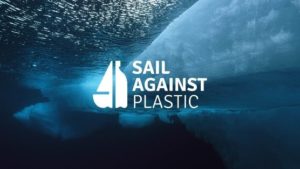
Sail Against Plastic represents a culmination of the time I have had at the University of Exeter, Penryn Campus. A diverse, exciting, unique, collaborative and supportive expedition mirrors my time spent studying and living in Cornwall. I completed my undergraduate degree here and couldn’t face leaving the vibrant campus, so continued onto a masters by research, looking into the effects of microplastic contamination on sea urchin larvae development. I chose to continue my studies at Exeter University because of the cutting-edge research being carried out across all of campuses. My undergraduate degree opened many doors into the research world and I couldn’t face leaving it.
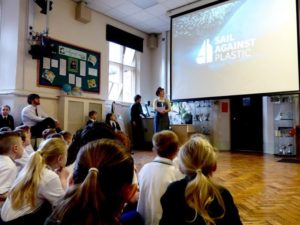 In the first few months of my research masters, whilst at a Plastic Free Falmouth meeting I was invited onto the Sail Against Plastic expedition as a Scientific Director.
In the first few months of my research masters, whilst at a Plastic Free Falmouth meeting I was invited onto the Sail Against Plastic expedition as a Scientific Director.
As a collaborative sailing expedition with scientists, photographers, film makers, artists, campaigners and sailors it had real promise as a science communication project to reach more people via film, art and photography. I strongly believe that scientists must make an effort to collaborate and merge environmental outreach and education with their research, in order to make positive change regarding environmental issues.
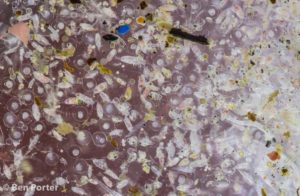 Our aim as a crew is to investigate and unveil invisible pollution in the Arctic ocean. We will be setting sail from Longyearbyen this summer, as a diverse 18 strong team aim to collect vital baseline data no some of the non-visible pollutants that pervade the seas here, including marine plastic pollution and man-made noise. Using manta trawls and drop-net sampling we will be able to gather baseline levels of microplastic pollution within the Barents Sea (located SE of Svalbard). Our data will contribute to globally-significant research, which may provide evidence to support the theory that the remote Barents Sea is in fact a ‘sixth gyre’ like the other five known ocean areas where currents aggregate plastic waste in huge concentrations.
Our aim as a crew is to investigate and unveil invisible pollution in the Arctic ocean. We will be setting sail from Longyearbyen this summer, as a diverse 18 strong team aim to collect vital baseline data no some of the non-visible pollutants that pervade the seas here, including marine plastic pollution and man-made noise. Using manta trawls and drop-net sampling we will be able to gather baseline levels of microplastic pollution within the Barents Sea (located SE of Svalbard). Our data will contribute to globally-significant research, which may provide evidence to support the theory that the remote Barents Sea is in fact a ‘sixth gyre’ like the other five known ocean areas where currents aggregate plastic waste in huge concentrations.
The Barents Sea is also home to one of the world’s largest industrial fisheries. However the waters around Svalbard are home to up to 14 species of marine mammal, where communication through low frequency sound can be essential for survival. Very little is understood about how, when and where human-generated noise might be impacting upon these species, but we hope to pioneer some preliminary research to begin the first steps to protect these already vulnerable marine species from the dangers of marine noise.
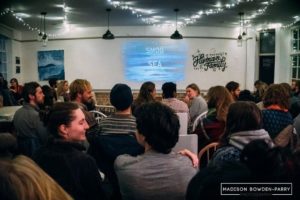 Through the use of film, photography and art, we hope to increase public awareness by making our findings educational and engaging, whilst highlighting the actions needed to preserve this spectacular region. So far, we have engaged with school children about the impacts of single-use plastics, surveyed locally for microplastics, hosted beach cleans and engaging film screenings, have danced our hearts out at our Ceilidh Against Plastic and Gig Against Plastic events. All these events have enabled us to engage with the public about the issues of single-use plastics and how areas which seem pristine and untouched, can be tainted with actions here in the UK. We want to be part of the solution and help communities to
Through the use of film, photography and art, we hope to increase public awareness by making our findings educational and engaging, whilst highlighting the actions needed to preserve this spectacular region. So far, we have engaged with school children about the impacts of single-use plastics, surveyed locally for microplastics, hosted beach cleans and engaging film screenings, have danced our hearts out at our Ceilidh Against Plastic and Gig Against Plastic events. All these events have enabled us to engage with the public about the issues of single-use plastics and how areas which seem pristine and untouched, can be tainted with actions here in the UK. We want to be part of the solution and help communities to 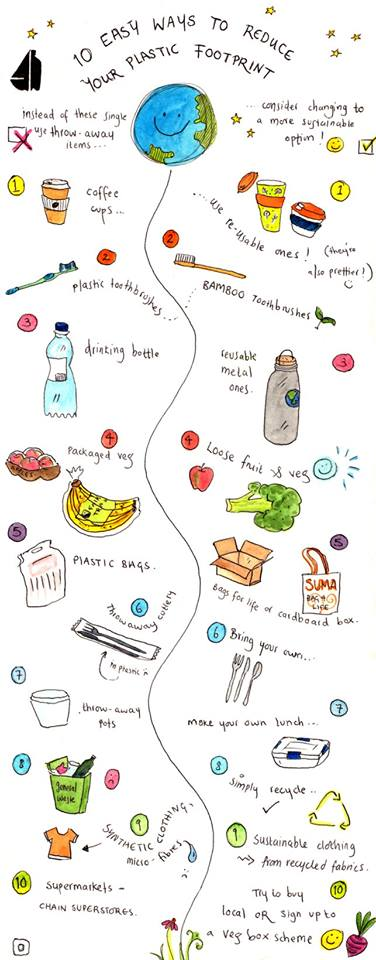 come together to be innovative and forward-thinking to stem the plastic tide.
come together to be innovative and forward-thinking to stem the plastic tide.
Reducing single-use plastic in your life can seem like a herculean task, when nearly everything we use has some form of plastic wrapped around it! However, simple swaps, community action, accessibility to information, inspiration, finding the correct tools and coming together really does make a difference. Our team members have seen this develop and grow first-hand in Cornwall, being involved in Plastic Free Falmouth, Penryn Produce and Falmouth Marine Conservation. However, with strong links with organisations, schools and individuals in Svalbard, we hope this expedition will be highly collaborative and have a meaningful impact, which goes above and beyond publishing scientific papers.
We are currently raising funds for the expedition, if you would like to support us or find out more please visit our Crowd Funding page!
This expedition is only possible with your help. Be part of the solution to save our oceans: support our project to enable us to make the unseen seen.
Connect with us:
Facebook – A Message from the Arctic
Instagram – A Message from the Arctic
#ExeterMarine is a interdisciplinary group of marine related researchers with capabilities across the scientific, medical, engineering, humanities and social science fields. If you are interested in working with our researchers or students, contact Michael Hanley or visit our website!
